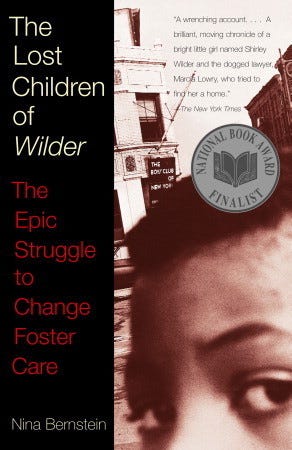Really Good Books About History: Part One

WAIT, how can we possibly do a “history” installment? Is it going to be, oh, okay, here are a bunch of books from various disparate eras that may or may not correspond to fields Nicole studied? Yes. That’s how it’s going to work. And then we’ll do a few more of them in upcoming weeks.
London Labour and the London Poor, Henry Mayhew — I have read this book, along with Mayhew’s The London Underworld in the Victorian Period: First-Person Accounts by Beggars, Thieves, and Prostitutes, at least eleventy-one times. It’s the English equivalent of my oft-recommended Low Life. It makes you want to write historical novels. It’s TEEMING WITH LIFE! VIVID LIFE! Also, fevered fans of the greatest poet of the English language (and certified juicebox), Philip Larkin may recognize the quotation he borrowed for one of his most beautiful poems, “Deceptions.” Do you know “Deceptions”? Shall we cover the final stanza?
Slums, years, have buried you. I would not dare
Console you if I could. What can be said,
Except that suffering is exact, but where
Desire takes charge, readings will grow erratic?
For you would hardly care
That you were less deceived, out on that bed,
Than he was, stumbling up the breathless stair
To burst into fulfillment’s desolate attic.
No, really. EMPATHY. Larkin’s little moment of empathy for a long-dead girl. Unnnnfh. Moving on.
Race and Reunion: The Civil War in American Memory, David Blight — If you read one book about Reconstruction, it’ll probably be Eric Foner’s, which is totally legit. But if you want to be emotionally transformed by a second book about Reconstruction, go for David Blight. It’s masterful. If you’ve ever wondered how the American South managed to change the national conversation into some kind of ridiculous “Brother’s War” soapfest in order to make everyone besties again and leave black Americans out in the cold, this will explain the EXACT MECHANISM to you. But you’ll also get into fights at parties, so, um, you’ll have to make that call on your own time.
Inferno, Max Hastings — I asked for this for Christmas, obviously. Everyone needs a very large and imposing WWII tome on their coffee table to impress visitors. Hastings has written about nine books on WWII by now, but you really only need this one, honestly. It’s also very person-focused, so it’s a little less “let’s shove our Risk pieces around the map for 1400 pages,” not that those books aren’t also necessary and wonderful. But I think you’ll find this one both bracing and engaging.
Mothers of Invention: Women of the Slaveholding South in the American Civil War, Drew Gilpin Faust — You don’t necessarily have to agree with Faust’s larger conclusions about the connection between the ebbing of female homefront fervor and the collapse of the Confederacy to find her research fascinating. Me, I can’t get enough of letters between women and diaries. I can’t! Is this why Tumblr works? Maybe. But the way women talk to each other and encode their desires and fears and interests and hopes is endlessly interesting, and watching an entire CULTURE go tits-up as the ultimate hollowness of their lives is revealed in wartime is just…argh….so incredible. Faust is also the first female President of Harvard University, and generally a great person.
The Girls Who Went Away, Ann Fessler — Sometimes I think about doing a “The Comment Section for Every Article Ever Written About Infertility,” just so we can cover the “why don’t people adopt?”/ “Please educate yourself about the historical social injustices of the Baby Grab Era, which has left people hesitant and bruised about the whole concept” phenomenon. This book destroyed me. And then my mother told a friend of hers about it, and her friend said: “it happened to me when I was seventeen. They tossed a towel on my face so I wouldn’t see my baby before they took him away. I wanted to change my mind, and they told me he was already with his new family. But he wasn’t, he was a preemie and was in the hospital for seven weeks before he went home.” But she met him last year, and it’s been very healing for her. And obviously we live in a very different world now, and what you should really take away from this book is the unintentional horrors we can cause by deciding who “should” have babies, and what would be “kindest” for women in difficult circumstances, and how we need to actually listen to each other, and all that.
The Lost Children of Wilder: The Epic Struggle to Change Foster Care, Nina Bernstein — Case in fucking point. I apologize for my strong language. You know how I recommend all these books, and sometimes I say “no, really, though, this one is necessary in order to live in society as an aware and often-bitchy person”? This is one of those books. You can watch yourself go through anger and denial and bargaining and so on, but SPOILERS, you’re not really going to wind up at acceptance. Please read the entire first chapter here.
Oh, we got heavy this week, guys, I’m sorry. But I really want you to read Wilder, okay?